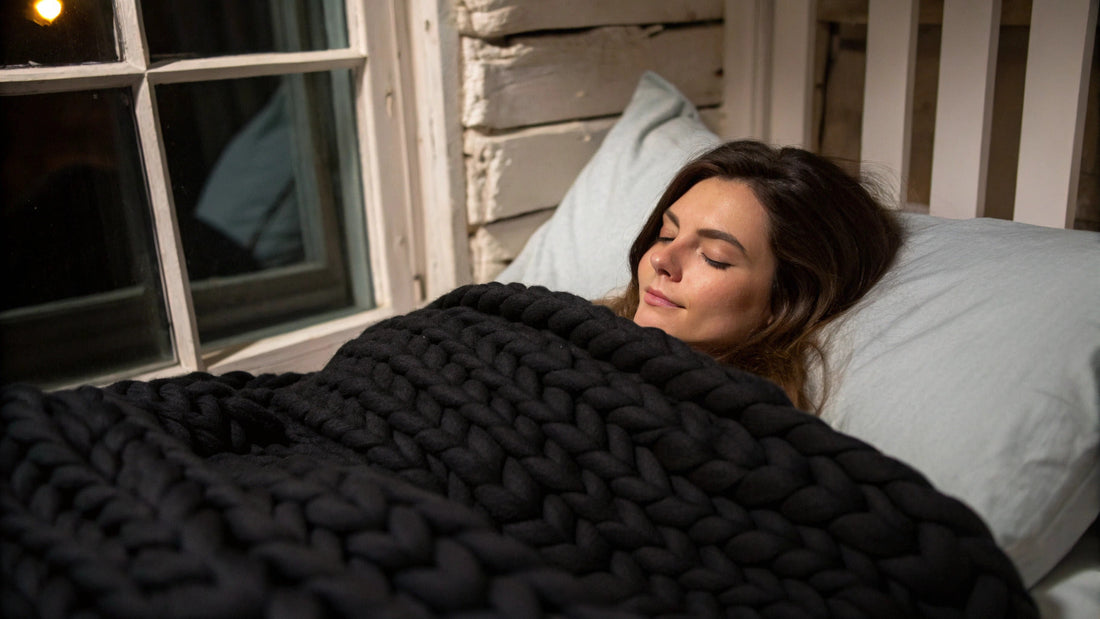
The Science of Melatonin – and How to Boost It Naturally
Melatonin is often called your “sleep hormone” — but it’s more than just a chemical that helps you doze off. It’s a key part of your body’s circadian rhythm, the 24-hour internal clock that tells you when it’s time to sleep, wake, and even eat.
Understanding how melatonin works — and how to support it naturally — can help you fall asleep faster, stay asleep longer, and wake feeling more refreshed.
Quick Answer
Melatonin is a hormone produced by your brain in response to darkness. It helps regulate your sleep-wake cycle. You can boost it naturally by dimming lights before bed, avoiding screens, getting morning sunlight, and supporting your body with good sleep habits.
1. What Exactly Is Melatonin?
Melatonin is made by the pineal gland, a small gland in your brain. Its release is triggered by darkness and suppressed by light — especially blue light from screens.
Key functions:
-
Signals to your body that it’s time to rest
-
Helps regulate your circadian rhythm
-
Acts as an antioxidant, protecting your cells
Melatonin doesn’t “knock you out” like a sleeping pill — it tells your body it’s safe to sleep.
2. How Your Body Produces Melatonin
Your brain follows a simple cycle:
-
Morning light exposure → Suppresses melatonin, increases alertness
-
Evening darkness → Triggers melatonin release, making you sleepy
-
Bright light at night → Delays or blocks melatonin, making it harder to fall asleep
The process is sensitive — even a quick check of your phone in the dark can lower melatonin production.
3. Signs Your Melatonin May Be Low
-
Trouble falling asleep at night
-
Waking up frequently
-
Feeling groggy in the morning despite enough hours in bed
-
Bad sleep schedule (night owl or jet lag)
4. How to Boost Melatonin Naturally
Here are science-backed ways to support your body’s melatonin production without supplements:
☀️ Get Morning Sunlight
Expose your eyes (no sunglasses for the first 10 minutes) to natural light soon after waking. This “resets” your body clock and keeps your evening melatonin release on track.
💡 Dim Lights 1–2 Hours Before Bed
Switch to warm, low lighting in the evening. Avoid bright ceiling lights and use lamps or candles for a softer glow.
📱 Reduce Screen Time at Night
Phones, tablets, and TVs emit blue light, which tells your brain it’s daytime. If you must use them, try blue light–blocking glasses or night mode.
🌙 Keep Your Room Dark
Blackout curtains or a sleep mask can prevent streetlights or early sunrise from interfering with melatonin release.
🛌 Use Calming Cues
Weighted blankets, relaxation music, and bedtime rituals help signal your body it’s safe to sleep, making melatonin more effective.
5. Should You Take Melatonin Supplements?
Melatonin supplements can help in specific cases — like jet lag or shift work — but they aren’t always necessary. Too much can actually disrupt your natural rhythm. Start with natural methods first.
Summary
Melatonin is your body’s natural sleep signal. Support it by embracing morning light, dimming evening lighting, avoiding late-night screens, and creating a calming sleep environment. These habits will help you fall asleep faster, stay asleep longer, and wake up refreshed.
FAQ
Q: Does food affect melatonin?
Yes. Foods like tart cherries, kiwi, and nuts contain melatonin or support its production.
Q: How long before bed should I dim the lights?
Aim for at least 1–2 hours.
Q: Can kids take melatonin supplements?
Only under medical advice — their sleep cycles can often be supported naturally without supplements.



